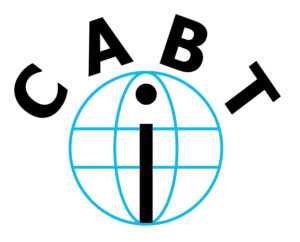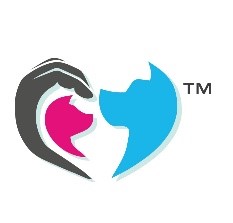The COAPE Diploma in Animal Behaviour is accredited as a Continuing Professional Development course by the South African Veterinary Council.

SAVC CPD ACCREDITED: CPD points for SAVC accredited courses are valid for qualified veterinarians and para-veterinary personnel in S.A.

The successful completion of the COAPE Diploma in Animal Behaviour will qualify you as a COAPE Certified Animal Behaviourist. ONLY COAPE qualified behaviourists can become members of the prestigious CABTi and have automatic membership to the International Companion Animal Network (ICAN).
of the COAPE Diploma in Animal Behaviour will qualify you as a COAPE Certified Animal Behaviourist. ONLY COAPE qualified behaviourists can become members of the prestigious CABTi and have automatic membership to the International Companion Animal Network (ICAN).
This course will help you to achieve your goal of making Animal Behaviour your full-time profession, whether you choose to work with companion animals, animals in rescue facilities, captive wildlife, rehabilitation or any animals where behavioural analysis, emotionality assessment, training and behaviour modification may be required.
Being your own boss has a lot of merit for people who enjoy working from home and working their own hours. If you choose to work with companion animals, networking with rescue organisations, trainers and veterinarians in your area is very important as this is where the majority of your referrals will come from. Most of these establishments do not have the time or resources available to address behaviour problems and are usually very relieved to be able to refer clients with problematic pets to someone who is highly qualified to deal with them. Plus, COAPE keeps a database of students who have successfully completed the Diploma and refers clients to them on a regular basis. If you want to work with other species, the Diploma is still the course for you – you will notice that dogs and cats are the 2 species we concentrate on in the Diploma because most people are familiar with them, but the course teaches mammalian behaviour and therefore is suitable for anyone wanting to work with any other mammalian species too. We teach the science of behaviour, which means once you have the tools and the know-how about applying them, you are well-equipped to work in this fascinating field, regardless of your choice of species.

WHAT THE STUDENT WILL LEARN:
Module 1:
- Dog domestication (including ethology of the dog, their perceptual abilities, social behaviour and selective breeding for function ((predatory motor patterns)), as well as how this impacts their behaviour today).
- Cat domestication (including ethology of the cat, their perceptual abilities, social and predatory behaviour).
- Type classification.
- Behavioural Ontogeny: The emotional and behavioural development of puppies and kittens, including sensitive periods of development and key behavioural milestones.
- Dominance in dogs.
Module 2:
- Functional neuroanatomy and Neurophysiology – the nervous system and its role in behaviour, including neural plasticity.
- Neurotransmitters and their relevance in behaviour.
- Learning Theory (operant and classical conditioning, habituation, sensitization, schedules of reinforcement, non-associative learning, desensitization and counter-conditioning).
- Understanding signals of reward and non-reward, using clickers and reward markers in behavioural therapy.
- The ethics of punishment and why it has no place in modern behaviour therapy.
Module 3:
- CORE emotional states in animals and their relevance in modern behavioural practices.
- The Neuroscience of CORE emotional states.
- The Science of Emotionality: Core affect space, dimensional and discrete emotion theories.
- MHERA: an emotional and behavioural wellness assessment protocol.
- Cognitive Bias.
- The Behavioural Inhibition System.
- MHERA Applied.
- Introduction to ESTA (Emotional Systems Therapeutic Application).
- ESTA Applied – helping animals resolve emotional challenges.
Module 4:
- Psychopathology in humans and animals/dogs.
- MHERA™ and ESTA™ application: Separation-related distress.
- Control and consent in training and behaviour.
- MHERA™ and ESTA™ application: Marking in cats.
Module 5:
- Behavioural pharmacology.
- Sexual behaviour and hormones.
- Dietary influences on behaviour.
- MHERA™ and ESTA™ application: Reactive and aggressive behaviour.
Module 6:
- How to conduct a consult.
- Risk assessment for the behaviour practitioner.
- Report writing: behaviour modification plans and vet reports.
Case studies 1 and 2:
The case studies are where you demonstrate your ability to take the theoretical knowledge accumulated throughout your course and apply it to animals who need behavioural assistance within the restrictions and complexities of everyday life. Once you have successfully passed your case studies, you will have earned your COAPE Certified Animal Behaviour (C.C.A.B.) certificate.
The field of animal behaviour and training plays a crucial role in enhancing our understanding of animals’ cognitive processes, emotions, and behaviours. The final Module of the COAPE Diploma in Animal Behaviour offers a comprehensive exploration of this field by requiring students to successfully complete two Case Studies. These Case Studies serve as a practical application of theoretical knowledge, providing valuable insights into the complexities of animal behaviour and the interventions required to address challenges. The COAPE Diploma in Animal Behaviour’s final Case Studies exemplify the program’s commitment to providing students with the practical skills and knowledge required to navigate these complexities. These case studies underscore the multifaceted nature of behavioural challenges and the importance of considering various factors in crafting bespoke and effective interventions. By completing these case studies, students gain a deeper appreciation for the ethical and evidence-based approaches to animal behaviour modification, contributing to the broader advancement of animal welfare and understanding.
COAPE prides itself on keeping up to date with the latest developments in the field of Animal Behaviour and making sure that our course content is always cutting edge. As such, the content and format are often updated as the field expands. Rest assured though that any changes will be incorporated into the students’ current courses.
PRACTICAL EXPERIENCE:
Please note that proficient understanding and ability to apply appropriate, motivational training techniques is a prerequisite for admission into this course. Should you find yourself unable to meet this requirement, we kindly request you to reach out to us for further discussion on potential alternatives.
COURSE INFORMATION:
Lecturers:
- Karin Pienaar (DipCABT) C.C.A.B. OCN, CertCAB, CABTi Practitioner, ICAN CAB member.
- Leigh Shenker BADA (Hons)(WITS), (DipCABT) C.C.A.B. OCN, CABTi Practitioner, ICAN CAB member.
- Nancy Payne BA(Physics), MSc (Physics), (DipCABT) C.C.A.B.
- Dr Vicky Payne BVetMed MRCVS, (DipCABT) C.C.A.B., CABTi Practitioner, ICAN CAB member.
Course Type:
An Online course comprising approximately 80 hours of pre-recorded lectures, research assignments, case studies, pro bono consultations and community service in animal welfare where allowed, plus comprehensive live tutor and student interactive sessions via Zoom, a very active closed Facebook page and WhatsApp group.
Course Format:
Each of the five lecture-based Modules comes with a comprehensive set of course notes that build into an authoritative reference text and workbook, to help students develop and integrate ideas throughout the course. Students also have password-protected access to the dedicated on-line COAPE Learner Management System where the lectures, plus additional support and course materials, are available.
Course Duration:
Approximately 24 months, with a maximum timeframe of 36 months if the Do-It-In-Your-Own-Time option is chosen.
The Online Diploma starts every February and August. Students may enrol at any time.
Additional Information:
Electronic course notes are provided for each lecture Module.
Abilities Required for This Course:
This course contains practical assessment activities which involve sight, hearing observations and physical interactions/handling skills.
Students must be computer literate, have the use of a computer with internet access and able to operate basic programs such as Microsoft Word.
A good command of the English language is essential.
This is a demanding course comprising approximately 80 hours of pre-recorded lectures, 5 assignments and 2 case studies, with 1 module of approximately 10 hours of lectures, being presented about every 4 months.
In addition, students are required to log pro bono hours.
This course requires dedication as it is the highest qualification of its kind, it is ESSENTIAL that all the books are read, and that additional independent research is done to ensure good marks.

